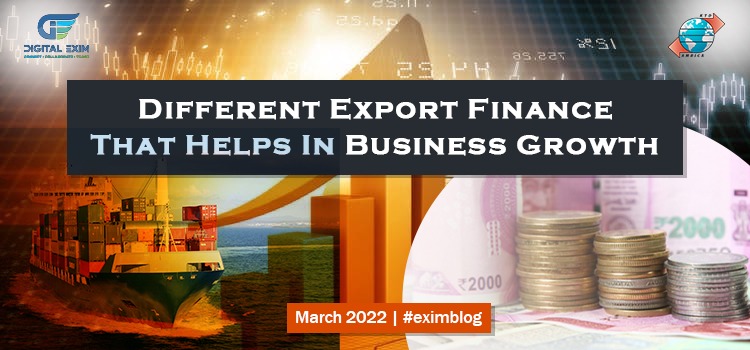As the name suggests, export financing involves providing funding to exporters to enable them to participate in the global marketplace. It is a cash flow solution that helps exporters meet their production and other global transactional needs, including working capital. Connect with import export training in Ahmedabad for better understanding. In addition to benefiting the customer, export finance is also beneficial to the country itself, as it generates important foreign exchange earnings for it. Export financing reduces the risk that the importers will default on their payments to exporters, as well as minimize the gap between manufacturers and overseas suppliers. A wide range of sources of export finance may be available to exporters to facilitate their capital needs. It is up to you to choose the source of credit that will meet your needs while also fitting into your firm’s long-term financing strategy. Here in this import export blog, we have discussed different types of export finances.
Types of Export Finance:
1 Pre- Shipment Finance-
This type of export finance is provided to exporters for the purchase of raw materials and transformation into finished goods. In other words, it is provided to exporters when they need funds before shipments of products and goods are received.
export finance from his bank against the export order received from the importer. Once the exporter receives funds from the overseas buyer, the packing credit is adjusted accordingly.
2 Post Shipment Finance-
An exporter receives export finance when his products are shipped, and an invoice is raised by the importer for payment, but this process may take a minimum of three to six months, and the exporter will have to secure working capital to fulfil orders during this period. Export bills are presented by exporters to their banks for this purpose after they export goods. Banks can purchase or collect the bills or even discount the bills.
3 Finance Against Collection of Bills-
Exporters who are shipping goods to other countries may apply to the bank for a loan against those bills sent for collection. The bank will usually offer to finance the export bills, which in turn will be repaid by guaranteeing companies in case the exporter defaults.
4 Discounting Letter of Credit-
As LCs have security from the issuing bank regarding making payments, exporters can also apply for the loan against them.
5 Government Subsidies and Allowance-
Subsidies provided by the government help exporters sell goods at a lower price to importers. Example- An exporter is awarded cash compensatory support by the government when their expenditures increase due to factors beyond their control, such as an increase in labour costs or transportation costs.
Conclusion-
Don’t take out more credit than you can afford to repay because defaults can negatively impact your credit for future loans. Be aware of the foreign exchange rate and terms and don’t take out more credit than you can afford to repay. If you are also interested in export import business than join our import export management course. Interested people can also join our live webinar. Click the link below to attend webinar. https://chat.whatsapp.com/Bqz4SWH55nSGtKj3GnJAC8Do give us a visit to start your international business!






